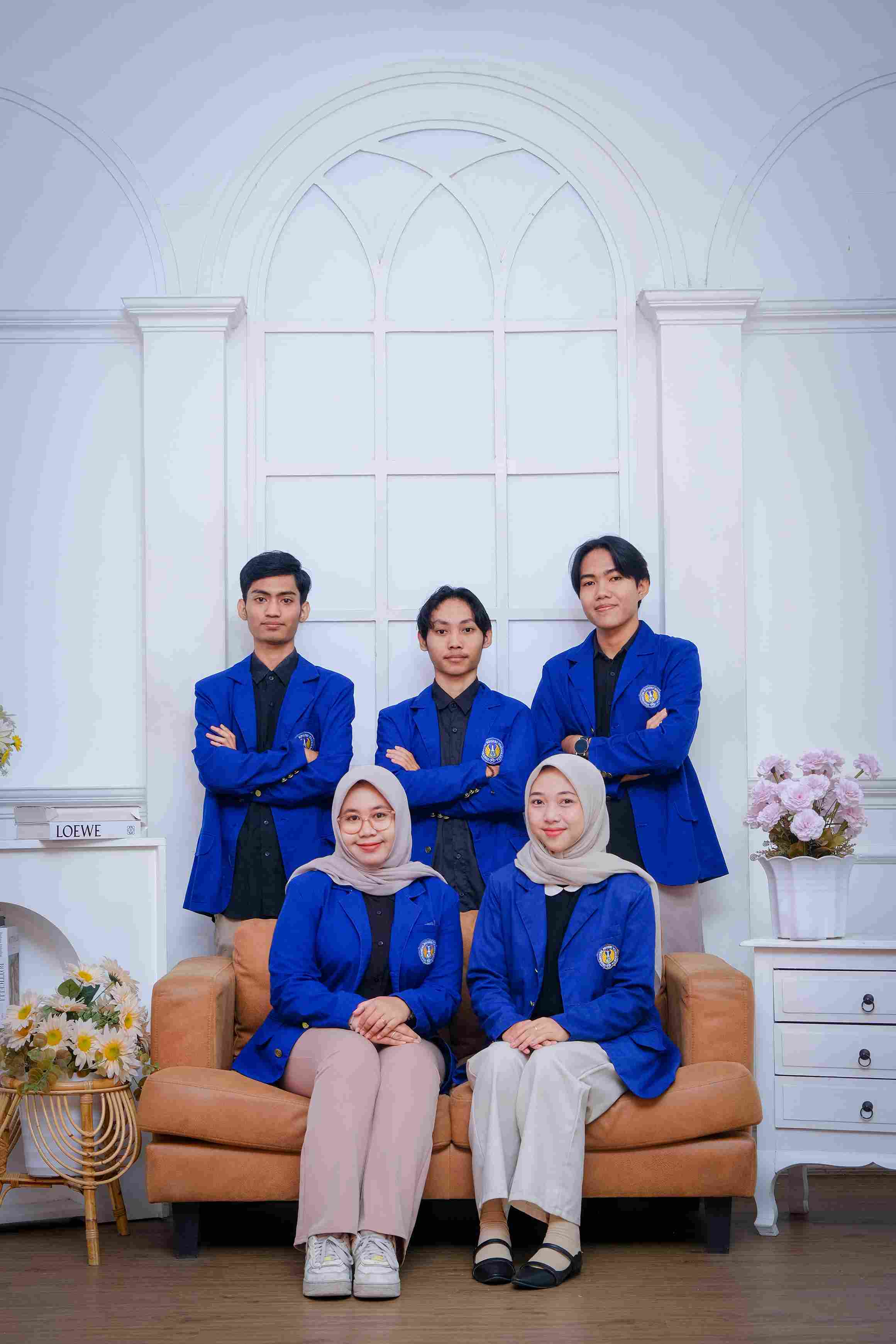 Bahasa Indonesia
Bahasa Indonesia English
English
You are here
UNY FMIPA Students Develop Eco-Friendly Nanofertilizer from Carbon Waste

Yogyakarta – Students from the Faculty of Mathematics and Natural Sciences (FMIPA), Universitas Negeri Yogyakarta (UNY), have once again demonstrated their commitment to sustainable innovation in science and technology. Through the Student Creativity Program in Exact Research (PKM-RE), the team successfully developed an eco-friendly nano-fertilizer derived from carbon-based waste, synthesized into carbon dots (CDs) and composited with silicon dioxide (SiO₂) and calcium oxide (CaO).
This innovation aims to enhance nutrient absorption efficiency and optimize plant growth, particularly in hydroponic systems.
The research team consists of Raihan Assad Annahar, Fatah Ari Kusuma Wardana, Aliffia Kusuma Wardani, Fahrani Ika Nur Aryanti, and Ghazy Refindramiqdad Glasieradyaksa, under the supervision of Dr. Wipsar Sunu Brams Dwandaru, S.Si., M.Sc., Ph.D., from the Department of Physics, FMIPA UNY.
According to the team leader, the research was motivated by two major issues in modern agriculture—low nutrient uptake efficiency and the accumulation of untreated organic waste.
“We identified great potential in utilizing carbon dots due to their photoluminescent properties, which can enhance light absorption and photosynthetic efficiency in plants,” the leader explained.
The addition of SiO₂ and CaO further strengthens plant tissue structure, supports cell wall formation, and stimulates root growth.
The nano-fertilizer was synthesized from carbon-based precursors to produce carbon dots, which were then composited with SiO₂ and CaO to form a ready-to-use liquid formulation. The product was tested in a hydroponic system with different application volumes—20 mL/week, 40 mL/week, and 60 mL/week, alongside a control group without treatment.
After 29 days of observation, the 40 mL/week treatment showed the most optimal growth performance. Plants exhibited significant improvements in height, leaf area, and stem diameter compared to the control group.
“Based on ANOVA statistical analysis, the differences among treatments were scientifically significant. This indicates that the nanofertilizer’s effects are not only visible but also quantitatively measurable,” said Fatah Ari Kusuma Wardana.
Furthermore, Aliffia Kusuma Wardani emphasized that this nanofertilizer could serve as an environmentally friendly alternative for improving agricultural productivity.
“Due to its nanoscale formulation, the use of chemical fertilizers can be reduced without compromising plant growth. This supports efficiency and sustainability in modern agriculture,” she explained.
The team hopes that this research can be further developed for large-scale applications.
“In the future, we aim to make this nanofertilizer easily applicable for farmers, not only in hydroponic systems but also in conventional soil-based agriculture,” the team leader concluded.
This innovation demonstrates how nanotechnology can open new opportunities in sustainable agriculture. Through this research, UNY students have proven that science and technology play a vital role in addressing environmental challenges while supporting national food security.
LEMBAGA DAN UNIT
- Pusat Layanan Terpadu
- Pusat Layanan Bahasa
- Pusat Layanan Perpustakaan
- Pusat Layanan Penerbitan
- Pusat Layanan Internasional dan Kemitraan
- Pusat Layanan Kesehatan Terpadu
- Pusat Layanan Teknologi Informasi dan Komunikasi
- Pusat Layanan Bimbingan dan Konseling
- Lembaga Penelitian dan Pengabdian Kepada Masyarakat
- Lembaga Pengembangan dan Penjaminan Mutu Pendidikan

FMIPA Universitas Negeri Yogyakarta
Kampus Karangmalang Yogyakarta 55281
Telepon dan fax (0274) 550847
Email: fisika@uny.ac.id
Copyright © 2025,
